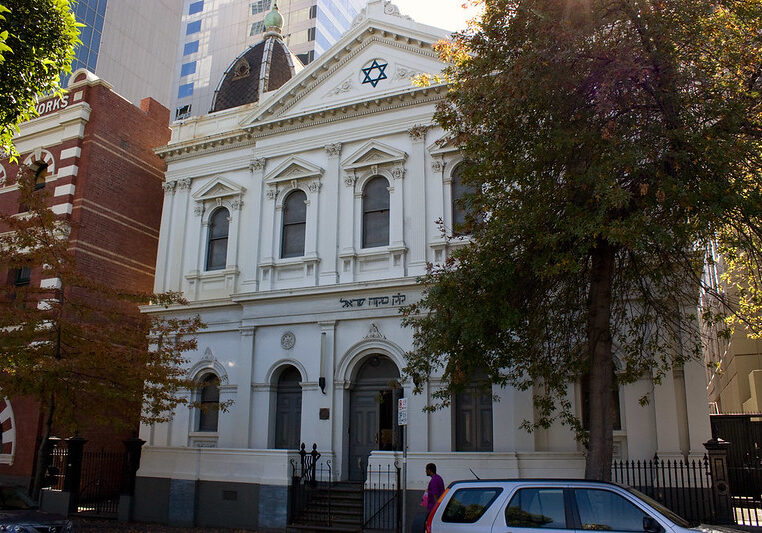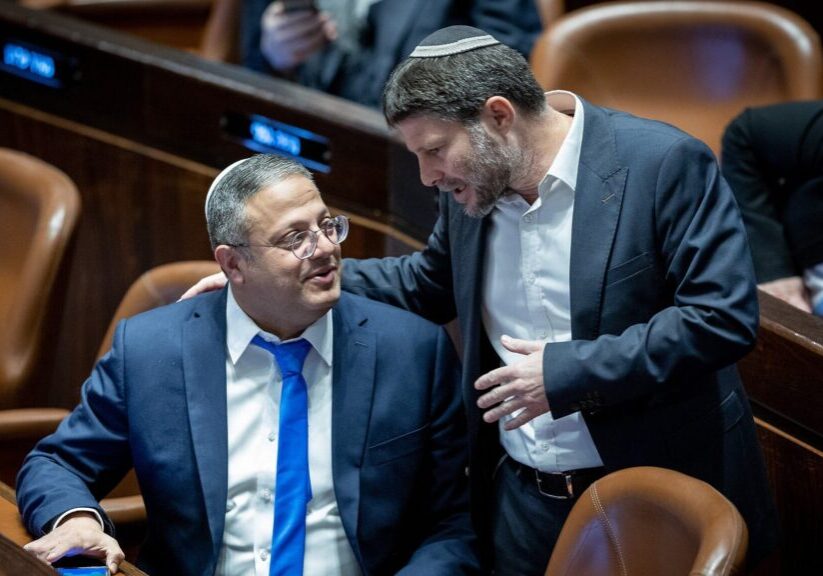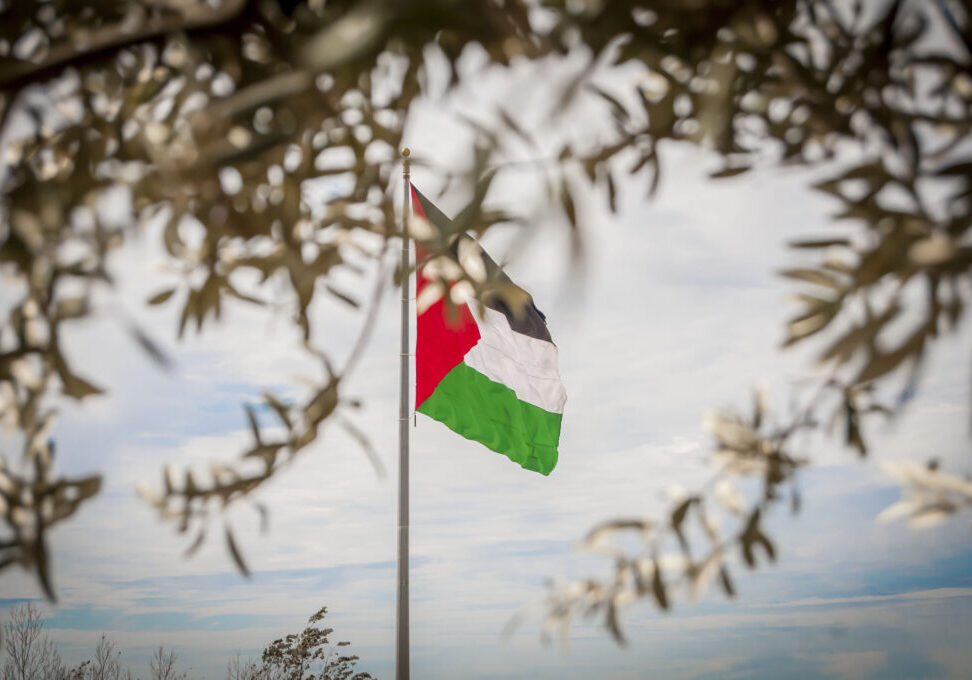Australia/Israel Review
Fringe Dwellers
May 30, 2019 | Sharyn Mittelman
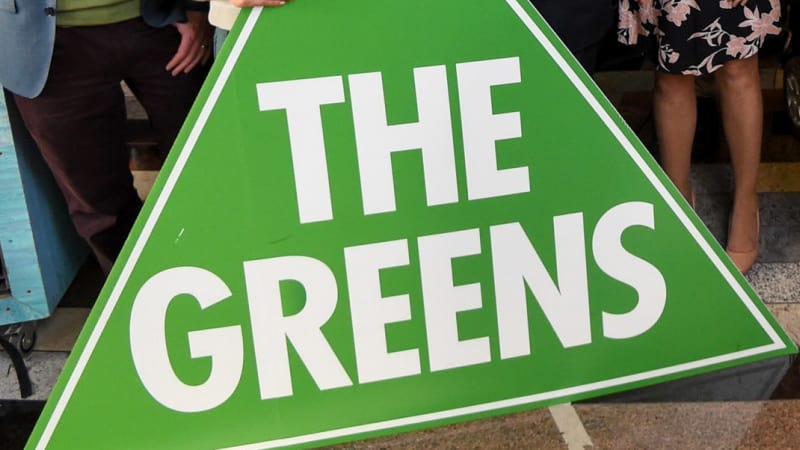
Most of the attention in Australia’s 2019 Federal election campaign was rightly on which of the two major parties would form government. However, numerous other smaller parties were running for election on both the left and the right and in the both the House of Representives and the Senate. As per a tradition at the AIR, here is our look at the election performance of the fringe parties of Australian politics.
(All data cited is based on the published results as of May 22, and is therefore unlikely to represent the precise final results.)
The Greens
The Greens will likely be disappointed with the election results because while Adam Bandt easily retained his seat of Melbourne, the Greens failed to win any other lower house seats despite their high hopes for Macnamara, Higgins, Kooyong, Wills and Cooper in Victoria.
In Macnamara, Labor’s Josh Burns won against the Greens’ Steph Hodgins-May and Liberal Kate Ashmor. Ms Hodgins-May received 25.28% of first preference votes, while Burns received 33.09% and Ms Ashmor 35.53%. However, Greens preferences likely enabled Burns to win the seat previously held by Michael Danby.
In Kooyong, Treasurer Josh Frydenberg was successful in fighting off Labor’s Jana Stewart and high profile Greens candidate Julian Burnside.
In Wills, Labor’s Peter Khalil recorded a 7.1% swing to the party, and the Greens’ Adam Pulford received a negative swing of 4.4%. In Cooper, Labor’s Ged Kearney recorded a 12.8% swing, while the Greens’ David Risstrom had a negative swing of 15.8%.
Overall, the Greens received 9.95% of national first preference votes, down 0.3% from 2016.
In the Senate, the Greens are expected to likely have six senators returned, one from each state, making their Senate total nine including the three Greens Senators not up for re-election this time around. The party received the following vote percentages for the Senate: NSW – 8.78%, QLD – 10.54%, VIC – 10.69%, SA – 11.56%, WA – 12.16%, TAS – 12.62%, ACT -17.31% and NT – 10.60%.
Clive Palmer’s United Australia Party
Clive Palmer’s United Australia Party (UAP) endorsed candidates in almost all lower house seats and received 3.4% of the nationwide vote, but Mr Palmer and his candidates failed to win any seats in parliament, despite spending around $60 million on advertising during the campaign.
However, UAP played a significant role in the 2019 election, with most UAP preferences likely flowing to the Liberal party, which many commentators believe helped the Coalition win the election. In the aftermath of the election, Palmer told the media, “The goal for the United Australia Party was to ensure the Labor government did not get into power, introducing more than $1 trillion of new taxes.”
UAP received the following percentage of first preference votes for the Senate: NSW – 1.42%, QLD – 3.41%, VIC – 2.43%, SA – 2.9%, WA – 1.65%, TAS – 2.61%, ACT – 2.26%, NT – 5.43%.
Pauline Hanson’s One Nation
One Nation leader Pauline Hanson has an infamous record of anti-multicultural, anti-immigration, anti-Asian and anti-Muslim rhetoric, which has been well documented.
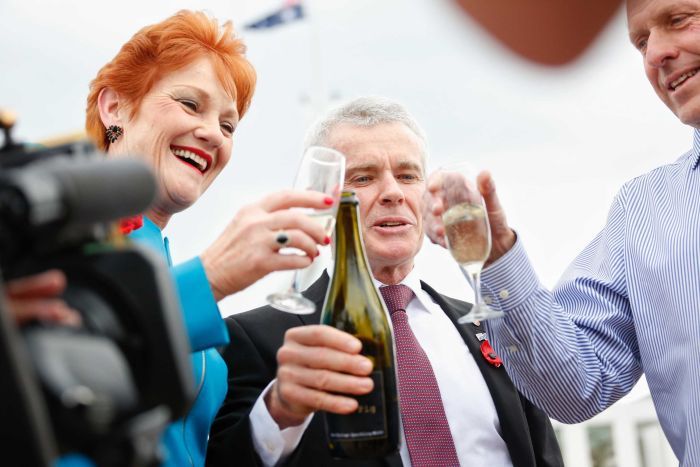
One Nation celebrates a primary vote boost and a financial windfall
One Nation’s share of the primary vote increased across Australia, most prominently in Queensland where a 3% swing to One Nation helped it capture 8.7% of the state’s primary vote. One Nation had candidates in 59 electorates – up from only 15 in 2016 – and its national first preference votes for the lower house increased from 1.29% in 2016 to almost 3% in 2019.
In the Senate, One Nation received the following percentage of first preferences: NSW – 4.94%, QLD – 10.16%, VIC – 2.75%, SA – 4.53%, WA – 5.50% and TAS – 3.52%. One Nation’s Queensland candidate Malcolm Roberts, ruled ineligible for the Senate in 2017 because of dual citizenship issues, is considered more likely than not to return to the Senate alongside Hanson, whose seat was not up for re-election this time round.
One Nation caused alarm in the NSW seat of Hunter, where its candidate Stuart Bonds received 21.8% of the vote but lost to Labor’s Joel Fitzgibbon.
It is interesting that One Nation’s vote grew despite controversies such as allegations aired in an Al Jazeera documentary that it was willing to accept donations from the US gun lobby in exchange for trying to water down Australia’s gun laws, and the resignation of Senate candidate Steve Dickson over a strip club video.
Moreover, because One Nation ran more candidates for the House Representatives this election, it is expected to receive around $3 million of public election funds – an increase of more than a third when compared to 2016. Parties are eligible to receive public funding if they attract at least 4% of the vote, and One Nation is expected to reach that threshold in approximately 46 seats.
However, as One Nation will only likely hold two Senate seats, compared to the 2016 election when it originally had four senators, this is likely to diminish its political weight. The Government will now have the option to negotiate with other parties on the Senate crossbench to pass legislation including the Centre Alliance (two seats), Cory Bernardi (one seat) and Jacqui Lambie (one seat), who appears likely to gain a Senate seat in Tasmania.
Fraser Anning’s Conservative National Party
Fraser Anning’s Conservative National Party was registered in April this year, following Anning’s brief stints as a senator for One Nation and then Katter’s Australian Party (KAP). Despite attracting media attention for his divisive antics, Anning’s party failed to make any inroads either in the House or Senate, despite competing in 42 lower house seats. Anning had been accused of racism following his infamous “final solution speech” in which he called for a return to a “European Christian” immigration system, and was censured in parliament for his comments linking the Christchurch terrorist attack to Muslim immigration. Mr Anning also appeared alongside known neo-Nazi Blair Cottrell at a far-right rally in Melbourne in January.
According to national first preferences for the lower house, Fraser Anning’s Conservative National Party received 62,880 votes (0.53%). In the Senate, the party received: NSW – 0.38%, QLD – 1.31%, VIC – 0.45%, SA – 0.70%, WA – 0.57%, TAS – 0.43%, NT – 2.02% and ACT – 0.91%.
Australia First Party (NSW) Incorporated
Australia First Party (AFP) is a far-right political party founded in 1996 by former maverick ALP MP Graeme Campbell and currently led by Jim Saleam – a convicted criminal, former member of the neo-Nazi Nationalist Socialist Party of Australia as a teenager, and founder of the militant Australian white supremacist group National Action.
The party ran in four lower house seats: in Lalor gaining 4.35%; in Lindsay, 1.7%; in Longman, 1.04%; and in Swan, 0.26%. The party did not run for the Senate.
Citizens Electoral Council
Formed in 1988, the Citizens Electoral Council (CEC) is the Australian wing of the international movement that propagates the views of American “physical economist,” and convicted fraudster Lyndon LaRouche – who died in February this year.
A Washington Post obituary by Timothy Smith notes that the former US Presidential candidate “built a worldwide following based on conspiracy theories, economic doom, anti-Semitism, homophobia and racism.”
The CEC ran in only two seats for the lower house – a change from past election where they often contested numerous seats – and received a tiny 2,834 nationwide first preferences (0.02%). Similarly, it had terrible results in the Senate: NSW – 0.03%, QLD – 0.07%, VIC – 0.09%, SA – 0.18%, WA – 0.08%, TAS – 0.10%.
Love Australia or Leave
The Love Australia or Leave political party was founded in 2016 by Kim Vuga who appeared on the Australian television documentary in 2015 “Go Back To Where You Came From”. Its policy platform includes extreme policies on Muslims, and a hardline view of immigration. The party ran only in the Queensland seat of Fisher and received 1.5% of the vote. In the Senate, the party received 0.33% of votes in Queensland.
Australian Liberty Alliance (ALA) “Yellow Vest Australia”
Australian Liberty Alliance rebranded the party as “Yellow Vest Australia” – recalling France’s Yellow Vest protest movement – for the 2019 election. The ALA was founded by members of the right-wing Q Society and was launched by far-right Dutch politician Geert Wilders. The party ran for two Senate spots with insignificant results: VIC – 0.06% and WA – 0.07%.
Other fringe groups
Radical socialist political parties the Socialist Equality Party (SEP) – which contested 4 lower house seats – and the Socialist Alliance – which contested 3 – each received around 0.02% of the national vote on first preferences. In the Senate, the SEP received: NSW – 0.04% and VIC – 0.34%, while the SA obtained: NSW – 0.12%, WA – 0.13%.
Meanwhile, some electors unsure who to vote for seem to have enjoyed voting for the Pirate party for the Senate: NSW – 0.35%, QLD – 0.47%, and VIC – 0.41%.


